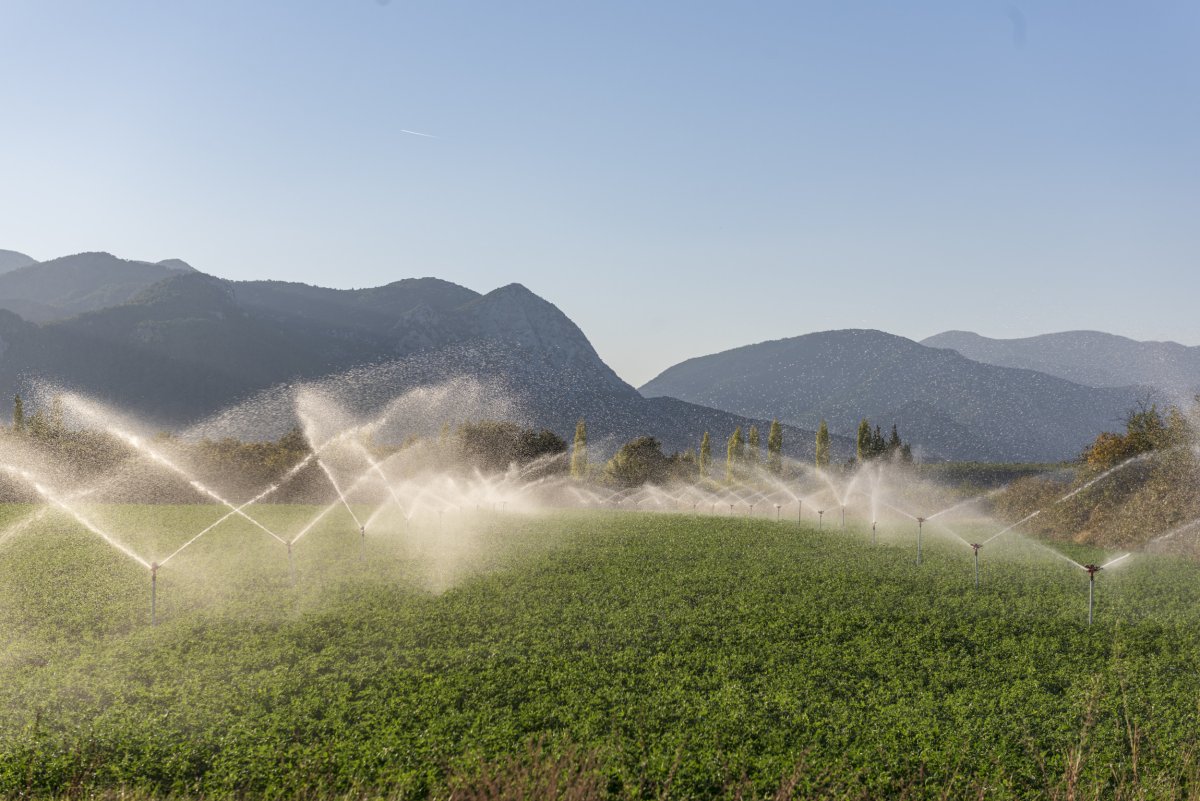California may be overlooking simple ways the state could save water supply, a new study has found.
The state is one of the most important for agriculture in the U.S. A third or more of the country's vegetables, as well as three-quarters of the fruits and nuts, are grown in the state, the Department of Food and Agriculture reports.
However, rising temperatures due to climate change, as well as a decline in water supply, are causing serious problems for farming in the region.
For this reason, officials are discussing a number of extreme solutions, with some legislation even overseeing some fields being taken out of cultivation completely.
But this new study from UC Santa Barbara found that by switching to lower water intensity crops, water consumption could be reduced by up to 93 percent. Newsweek reached out to the authors via email for comment.

The authors suggest that such extreme measures to conserve water do not actually need to be taken. They reached their findings by combining remote sensing, data and machine learning to work out how much water crops in the Central Valley actually use, the study reported.
"There's an opportunity for less obtrusive methods of saving water to be more important than we originally thought," lead author Anna Boser, a doctoral student at UCSB's Bren School of Environmental Science & Management said in a statement. "So we might not have to make as many changes in land use as we originally thought. What that means is maybe we're overlooking some other ways that we could save water."
The study also notes further savings could be made, as northern counties have "substantially lower irrigation efficiencies than southern counties."
"Other practices that do not alter land cover can save up to 11% of water consumption," the authors write in the study. "These results reveal diverse approaches for achieving sustainable water use, emphasizing the potential of sub-field scale crop water consumption maps to guide water management in California and beyond."
Agriculture uses 80 percent of all water in California. But prolonged drought conditions and unpredictable weather patterns exacerbated by climate change have meant water supply is more fickle than it used to be.
These authors also noted the importance of being able to estimate how much water is actually needed for farms, so that officials can better prepare. This would help the state reach goals such as the Sustainable Groundwater Management Act (SGMA), initiated in 2014. This act states by 2040, that every groundwater basin must be sustainable.
"Declining groundwater levels and a changing climate put pressure on the availability of irrigation water, making it critical to determine how we can 'do more with less,'" co-author of the study Kelly Caylor, a professor at the Bren School, said in a statement.
Do you have a tip on a science story that Newsweek should be covering? Do you have a question about crops? Let us know via science@newsweek.com.
Uncommon Knowledge
Newsweek is committed to challenging conventional wisdom and finding connections in the search for common ground.
Newsweek is committed to challenging conventional wisdom and finding connections in the search for common ground.
About the writer
Robyn White is a Newsweek Nature Reporter based in London, UK. Her focus is reporting on wildlife, science and the ... Read more
To read how Newsweek uses AI as a newsroom tool, Click here.








